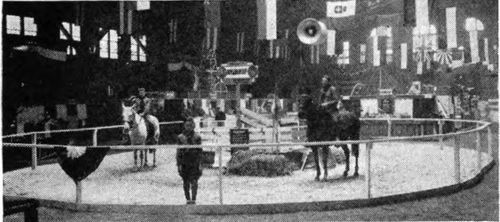Part III. Doing The Job In The District. Chapter XI. How The Rural District Operates
Description
This section is from the book "Scouting For Rural Boys. A Manual For Leaders", by Boy scouts of America. See also: Outdoor Adventure Manual: Essential Scouting Skills for the Great Outdoors.
Part III. Doing The Job In The District. Chapter XI. How The Rural District Operates
While planning for the Council's rural program is done by the Council (with all districts represented on the planning body) (perhaps with advice of a Rural Planning Committee of the Council)-yet the actual carrying out of such plans is done in and by the District organization.
The District is where the rural boys live. Their friends and neighbors are represented on the Committees, or are known to those on the Committees. Here is the place where the organization deals directly with the "customer", so to speak-the institution or rural group or homes using the program, each neighborhood for its own boys.
So the district becomes the council's area of action and the Council's Rural Planning Committee can do much to help push a strong district program.
Outline Of Steps In Rural Development
FIRST OF ALL WE SHOULD COUNSEL WITH RURAL LEADERS-who know the district and its people. This should be done both for a new district or in reorganizing an old one.
If the district awaiting rural extension is already organized, at least in part, the order of events is
1. Train the Organization and Extension Committee in rural extension and plan a course of action.
2. Make Boy-Fact Surveys in cooperation with County School authorities.
3. Tabulate, classify, and study findings.
4. Present findings to the interested parties so that the job becomes their own opportunity and their own program-they may constitute sponsoring committees.
5. In the light of the Boy-Fact Survey facts, take steps to afford each rural boy the chance to get Scouting in "his most needed way."
6. Develop, as needed, District Commissioner Staff (both Neighborhood Commissioners and special Field Commissioners for Lone Scouts, Neighborhood Patrols, Cubbing and Senior Scouting) to give service to the Scout groups organized and to help get Scouting started.
7. Interest all District Committees in serving these new Scouts (as outlined below).
The District Committees
a. DISTRICT ORGANIZATION AND EXTENSION COMMITTEE undertakes to organize Troops, Tribes, Neighborhood Patrols, Packs, Neighborhood Dens, Lone Cubs, Lone Scouts, Lone Explorers or Lone Rovers, according to a district plan-with the cooperation of District Commissioners and the Council Field Commissioners for Lone Scouts, Neighborhood Patrols, Cubbing and Senior Scouting.
b. DISTRICT LEADERSHIP TRAINING COMMITTEE aids in mobilizing leaders and committeemen and conducts various training courses for them, including the (Ten Hour) Special Rural Leader

DEMONSTRATING HORSEMANSHIP-MERIT BADGE EXPOSITION.
Training Course, for the completion of which the National Council issues special certificates.
c. DISTRICT HEALTH AND SAFETY COMMITTEE promotes protection through health and safety inspections-furthers education in health knowledge and in safety skills-organizes service for emergencies and special efforts as applied to all rural situations of the district.
d. DISTRICT ADVANCEMENT COMMITTEE furthers plans for Scout advancement, including preparation, examination, "review", and award on basis of challenging all rural boys to advance in Scout ranks and Merit Badge opportunities. It must plan for the training of all Merit Badge Counselors to do their jobs well.
e. DISTRICT CAMPING AND ACTIVITIES COMMITTEE plans opportunities for Scouts to take part in council-wide, district and community programs, Scoutoramas, Camporamas, rallies, cam-porals, exhibits, demonstrations, circuses, courts of honor, public ceremonies, demonstration and service camping at county and state fairs and all-year camping experiences, as well. It also plans and encourages boys to volunteer for community service -neighborhood, district, area council and nationwide.
f. DISTRICT FINANCE COMMITTEE cooperates with Council Finance Committee in developing the council's financial plan within the district, and then mobilizes men to raise the funds needed from the district. The council budget is the total of funds raised from all districts as representative parts of the whole area council.
If the district awaiting rural Scout extension and service is not already organized or not fully organized, the following course of action has proven effective in many councils.
Continue to:


